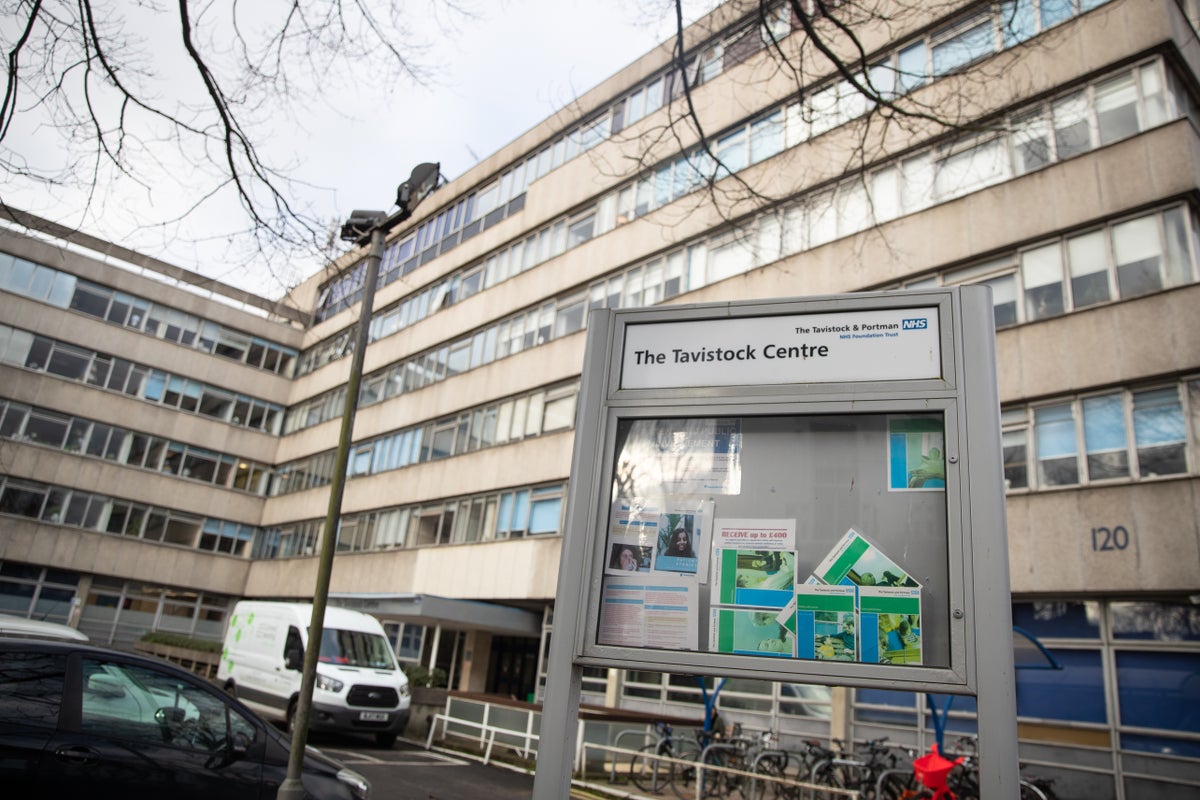
The NHS’s only gender identity clinic for children has been found to be neither “safe nor viable” and is set to be replaced by regional hubs.
A damning report into gender identity services run by the Tavistock and Portman Foundation Trust has found that the model is putting children at “considerable risk”.
An interim report by Dr Hilary Cass said that children and young people are being subjected to “lengthy” waits for access to gender dysphoria services, and are not receiving support during this time.
The report said a “fundamentally different” service model that can provide timely and appropriate care for children is needed, and recommended that the NHS launch local specialist centres.
In response, NHS England said that its contract with the Tavistock would be brought to a close, and that two centres would be established by specialist children’s hospitals in London and the North West. It will aim to put these in place by spring 2023.
The current service, run by the Tavistock and Portman trust, has previously been accused of rushing children into hormonal treatments.
According to board papers published by the hospital this week, more than 5,000 children were waiting following a referral to its Gender Identity Development Service (GIDS) at the end of March 2022. The service is only just seeing patients who were referred in 2018.
The waiting list for patients referred to the gender identity clinic stood at more than 10,000 at the end of 2021-22, when the service was still seeing patients originally referred in 2017.
The trust’s documents also showed that 22 patient safety incidents had been recorded in the last quarter of 2021-22, which included an attempted suicide.
Dr Cass said that children with gender-related distress have been disadvantaged because local services are not equipped to help them. She said: “It is essential that they can access the same level of psychological and social support as any other child or young person in distress, from their first encounter with the NHS and at every level within the service.”
Dr Cass’s interim report highlighted challenges within the Tavistock’s service, which included staff concerns about care that were raised in 2018.
Her full report is due to be published next year, but has so far warned that the long waiting lists for gender-questioning children and young people are “unacceptable”.
The review said it was not yet able to provide recommendations on the use of puberty blockers and feminising or masculinising hormones, due to gaps in the evidence.
In a letter to children affected by the changes, Dr Cass said: “I have heard that young service users are particularly worried that I will suggest that services should be reduced or stopped. I want to assure you that this is absolutely not the case – the reverse is true. I think that more services are needed for you, closer to where you live.
“I am advising that more services are made available to support you. But I must be honest: this is not something that can happen overnight, and I can’t come up with a solution that will fix the problems immediately. However, we do need to start now.”
A report from safety watchdog the Healthcare Safety Investigation Branch in April warned that CAMHS (Children and Adolescent Mental Health Services) had been forced to “hold the risk” while caring for children who are waiting to access specialist gender-dysphoria services.
It added: “There is a lack of capacity and capability to ensure proactive risk assessment of the health of patients waiting on the GIDS waiting list.”
The review was prompted by the suicide of an 18-year-old transgender man who had been referred to the NHS gender development service at 16 years old but was told he would not be seen for nearly two years.
If you are experiencing feelings of distress, or are struggling to cope, you can speak to the Samaritans, in confidence, on 116 123 (UK and ROI), email jo@samaritans.org, or visit the Samaritans website to find details of your nearest branch.
If you are based in the USA, and you or someone you know needs mental health assistance right now, call the National Suicide Prevention Helpline on 1-800-273-TALK (8255). This is a free, confidential crisis hotline that is available to everyone 24 hours a day, seven days a week.
If you are in another country, you can go to www.befrienders.org to find a helpline near you.







